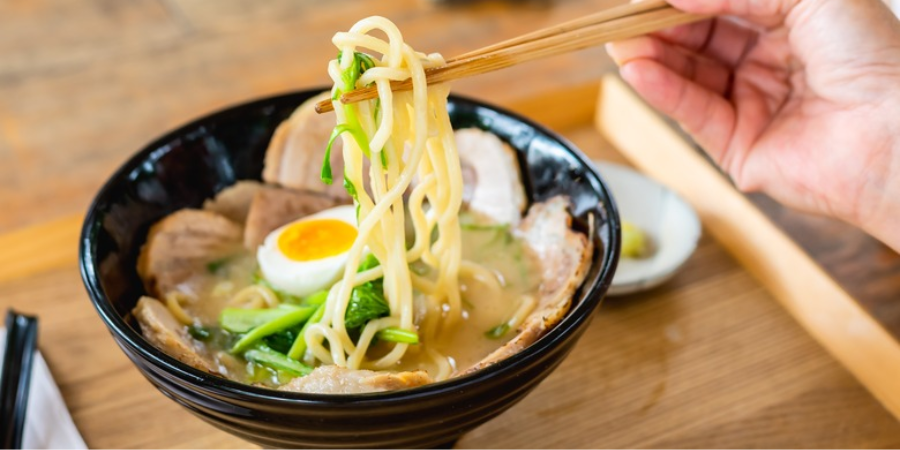Ramen, the beloved Japanese noodle dish, has become a global sensation. With its savory broth, chewy noodles, and flavorful toppings, it’s no wonder that ramen has captured the hearts and taste buds of millions. However, as its popularity has grown, so has the debate over its health benefits. In this comprehensive guide, we’ll explore the nutritional value of ramen, its potential health risks, and whether it can be considered a healthy meal option.
What is Ramen?
Ramen is a Japanese noodle soup dish that typically consists of Chinese-style wheat noodles served in a meat or fish-based broth, often flavored with soy sauce or miso, and topped with various ingredients such as sliced pork, nori (dried seaweed), menma (fermented bamboo shoots), and scallions.
The Nutritional Value of Ramen
To determine whether ramen is healthy, we need to examine its nutritional content. Here’s a breakdown of the key nutrients in a typical serving of ramen:
| Nutrient | Amount |
|---|---|
| Calories | 380-500 |
| Fat | 14-20g |
| Sodium | 800-1,200mg |
| Carbohydrates | 40-60g |
| Protein | 8-12g |
While ramen does provide some protein and carbohydrates, it is also high in fat and sodium. The high sodium content is particularly concerning, as excessive sodium intake has been linked to high blood pressure, stroke, and other health issues.
Potential Health Benefits of Ramen
Despite its high sodium content, ramen may offer some potential health benefits:
- Protein: The protein in ramen, typically from the noodles and toppings, can help build and repair tissues in the body.
- Carbohydrates: The carbohydrates in ramen provide energy for the body and can help fuel physical activity.
- Vitamins and Minerals: Depending on the ingredients used, ramen may contain small amounts of vitamins and minerals such as iron, folate, and vitamin B12.
Potential Health Risks of Ramen
While ramen may offer some potential health benefits, it also comes with several health risks:
- High Sodium: As mentioned earlier, the high sodium content in ramen can lead to high blood pressure, stroke, and other health issues if consumed in excess.
- High Fat: The fat content in ramen, particularly from the oil used in cooking and the toppings, can contribute to weight gain and an increased risk of heart disease if consumed regularly.
- Processed Ingredients: Many ramen dishes contain processed ingredients such as MSG (monosodium glutamate) and preservatives, which may have negative health effects if consumed in large quantities.
- Lack of Fiber: Ramen is typically low in fiber, which is important for digestive health and maintaining a healthy weight.
Making Ramen Healthier
While ramen may not be the healthiest meal option, there are ways to make it more nutritious:
- Choose a Healthier Broth: Look for ramen dishes made with a broth that is low in sodium and contains ingredients such as chicken or vegetables.
- Add Vegetables: Adding fresh vegetables such as spinach, carrots, and bean sprouts can increase the nutrient content of your ramen and provide additional fiber.
- Use Lean Protein: Choose lean protein sources such as grilled chicken or tofu instead of fatty meats like pork belly.
- Limit Processed Toppings: Avoid processed toppings such as fried onions and MSG-containing sauces, and instead opt for fresh ingredients such as scallions and sesame seeds.
- Drink Water: Drinking water while eating ramen can help flush out excess sodium from your body.
Ramen in Moderation
While ramen may not be the healthiest meal option, it can be enjoyed in moderation as part of a balanced diet. The key is to be mindful of portion sizes and to choose healthier ramen options when possible. Remember, a healthy diet is all about balance and variety, so don’t feel guilty about indulging in a delicious bowl of ramen every once in a while.
Conclusion
In conclusion, while ramen may not be the healthiest meal option, it can be enjoyed in moderation as part of a balanced diet. By choosing healthier broth options, adding fresh vegetables, using lean protein sources, and limiting processed toppings, you can make your ramen a bit more nutritious. Remember, a healthy diet is all about balance and variety, so don’t be afraid to indulge in a delicious bowl of ramen every once in a while.


